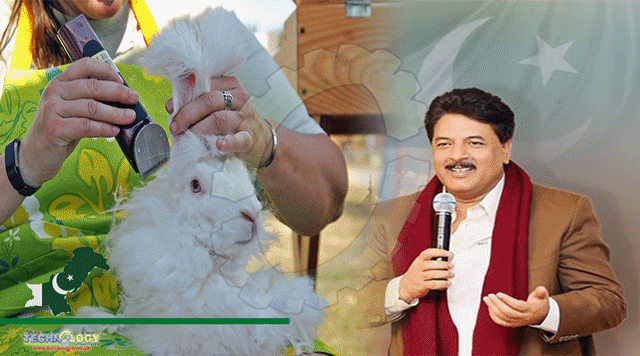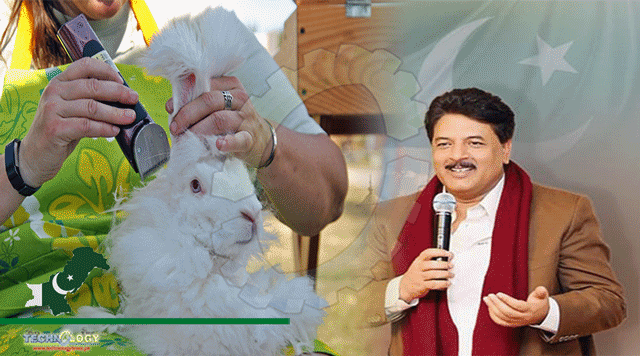Special Assistant To The Prime Minister On Food Security Jamshed Iqbal Cheema Has Launched Angora Rabbit Scheme In Gilgit-Baltistan.

Special Assistant To The Prime Minister On Food Security Jamshed Iqbal Cheema Has Launched Angora Rabbit Scheme In Gilgit-Baltistan To Help The People, Especially Women, Earn A Decent Living By Making Wool Products. The Pakistan Agriculture Research Council (PARC) has started the scheme. The launched ceremony was held in Jaglot area near Gilgit following the arrival of 10 pairs of Angora rabbits from Nepal.
PARC chairman Dr Mohammad Azeem Khan, in-charge Angora rabbit scheme Javed Iqbal and minister for agriculture Mohammad Kazim Maisam were also present. Under the scheme, Angora wool, made from the Angora rabbit’s fur, will be used for weaving shawls, thereby increasing the production of wool products in GB. On the occasion, PARC chairman Dr Mohammad Azeem said the rabbits would be distributed among all the districts of GB. He estimated that wool from the fur of one Angora rabbit could be used for weaving four to six high quality shawls every year.
Dr Khan said the breeding of Angora rabbits could help reduce poverty in GB as it would contribute to increasing the production of wool products and creating employment for women. Javed Iqbal, the project in-charge, told Dawn that Angora rabbit was one of the oldest types of domestic rabbit, and was bred for the long fibers of its coat known as Angora wool that was gathered by shearing, combing or plucking. He said Angora rabbits were famous for producing textile quality wool.
Mr Iqbal said an Angora rabbit produced 800 and 1000 grams wool annually, which was enough for making six shawls. The project in-charge said commercial and domestic rabbits farming had not yet been introduced in Pakistan, and the PARC had taken the initiative for providing a source of living for poor farmers, especially women in Khyber Pakhtunkhwa, Balochistan, GB, AJK and Punjab. “Earlier 800 rabbits were distributed in AJK, KP and some parts of Punjab,” he added.
Meanwhile, the PARC has set up a potato tissue culture laboratory in Chilas to provide disease-free potato seeds to the farmers so they could become self-sufficient and economically stable by getting maximum production in less time. SAPM on National Food Security and Research Jamshed Iqbal Cheema inaugurated the laboratory and screen house. It is a PSDP project to promote potato tissue culture technology in Pakistan On the occasion, Mr Cheema said the government would take all possible steps to increase the productivity of agriculture, livestock, fisheries and vegetables to make GB’s people self-sufficient.
Dr Azeem Khan said tissue culture technology was being widely used for large-scale plant multiplication that gave a science-based solution for plant propagation, disease elimination and plant improvement.
This news was originally published at Dawn.
